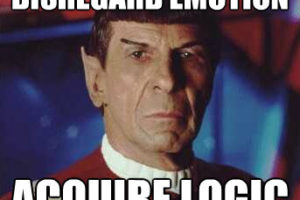World History Practice
- Posted by Brian Stocker MA
- Date December 15, 2014
- Comments 2 comments

Important World History Events
These events encompass a broad range of historical developments and are often included in educational curricula to provide a comprehensive understanding of world history.
Ancient and Classical Periods
- Writing Systems (c. 3500 BCE) – Emergence of cuneiform in Mesopotamia and hieroglyphics in Egypt.
- Code of Hammurabi (c. 1754 BCE) – One of the earliest written legal codes in Babylon.
- Rise and Fall of Ancient Egypt (c. 3100 BCE – 332 BCE) – Unification, pyramids, and dynastic periods.
- Classical Greece (c. 800 BCE – 323 BCE) – Democracy in Athens, the Persian Wars, and the conquests of Alexander the Great.
- Roman Empire and Republic (509 BCE – 476 CE) – Roman law, expansion, and eventual fall.
Middle Ages
- Christianity Spreads (1st – 4th centuries CE) – Rise of Christianity within the Roman Empire.
- Islam Rises (7th century CE) – Muhammad and the expansion of Islamic caliphates.
- Feudalism Spreads (9th – 15th centuries CE) – Political and economic system of medieval Europe.
- The Crusades (1096 – 1291 CE) – Series of religious wars initiated by the Latin Church.
- The Black Death (1347 – 1351 CE) – Bubonic plague killed a significant portion of Europe’s population.
Early Modern Period
- The Renaissance (14th – 17th centuries) – Revival of art, culture, and knowledge in Europe.
- The Age of Exploration (15th – 17th centuries) – European exploration and colonization of the Americas, Africa, and Asia.
- The Reformation (1517 – 1648) – Martin Luther splits from the Catholic Church.
- The Scientific Revolution (16th – 18th centuries) – Science and the the scientific method.
- The Enlightenment (17th – 19th centuries) – Intellectual movement emphasizing reason, individualism, and skepticism of traditional authority.
Modern Era
- The French Revolution (1789 – 1799) – Overthrow of the monarchy and rise of Napoleon.
- The Industrial Revolution (18th – 19th centuries) – Technological advancements shift from agrarian to industrial societies.
- World War I (1914 – 1918) – Global war.
- World War II (1939 – 1945) – Global war.
- The Cold War (1947 – 1991) – Political and military conflict and tension between the Soviet Union and the United States.
- Decolonization (mid-20th century) – Independence movements in Africa, Asia, and the Caribbean.
- Fall of the Berlin Wall (1989) – The Cold War ends and East and West Germany are unified.
- September 11 Attacks (2001) – Terrorist attacks in the United States leading to the War on Terror.
Practice Questions
1. Which invention was a cause of the Renaissance in Europe?
a. The steam engine which allowed mass transportation of goods
b. The flying shuttle which increased cloth production
c. The printing press which increased production of books
d. Concave and convex lenses which led to the development of eye glasses, microscopes, and telescopes
2. Which important Renaissance figure wrote Utopia?
a. Thomas More
b. Niccolo Machiavelli
c. Martin Luther
d. Nicholas Copernicus
3. Which of these was NOT a result of the Renaissance in Europe?
a. Increased appreciation for reason, the arts and sciences.
b. Weakening of the authority of the Church.
c. Weakening of the authority of the monarchy.
d. Increased the use of local languages.
4. An increased spirit of inquiry by the people, interference by the Pope in non-religious matters and selling of indulgences by the Church led to what?
a. The Renaissance
b. The Reformation
c. The Scientific Revolution
d. The Protestant Revolution
5. Which of these was NOT a result of the Reformation?
a. The creation of the Protestant sect of the Christian Church
b. The Thirty Years’ War
c. Increased power of the monarchy
d. An end to religious prosecution
6. What is Martin Luther most famous for?
a. Breaking free of the Church and supporting the formation of Presbyterian churches
b. Preaching for religious tolerance during the Reformation
c. Writing the 95 theses in 1517 that attacked the Church
d. Writing Utopia in 1516
7. Which key figure of the Scientific Revolution was responsible for the discovery of the laws of planetary motion that later influenced Isaac Newton?
a. Johannes Kepler
b. Galileo Galilei
c. Francis Bacon
d. Rene Descartes
8. Who introduced the heliocentric view of the universe?
a. Nicholas Copernicus
b. Tycho Brahe
c. Francis Bacon
d. Isaac Newton
9. Which of these did NOT lead to the Scientific Revolution in Europe?
a. Expansion of trade
b. Humanism
c. The Reformation
d. Need for military advancement
10. What was the main reason for European exploration in Asia?
a. Spreading Christianity
b. Trading and acquiring goods
c. Need for slaves
d. Acquisition of land
11. Which of these was NOT a major result of European colonization for Africa?
a. Lack of manufacturing
b. Civil war
c. Poverty
d. Pollution
12. What was NOT a reason European countries decided to create colonies in Asia and Africa?
a. Excess population
b. Desire for wealth
c. Fear of attacks by Asia or Africa
d. National prestige
13. Which were the first European powers to colonize the Americas?
a. England and France
b. Spain and France
c. Spain and Portugal
d. England and Portugal
14. What was the leading cause of deaths in indigenous peoples in the Americas following European colonization?
a. Warfare
b. Disease
c. Starvation
d. Slavery
Answer Key
1. C
The printing press made classical texts and other works available at a large scale which influenced Renaissance thinking. Choice A is incorrect, the steam engine was developed during the Industrial Revolution. Choice B is incorrect, the flying shuttle was developed during the Industrial Revolution. Choice D is incorrect, although lenses were developed during the Renaissance, they were not a cause.
2. A
Thomas More was a Renaissance humanist who wrote the about the Utopian political system in Utopia.
Choice B is incorrect, Niccolo Machiavelli was a Renaissance writer who wrote The Prince. Choice C is incorrect, Martin Luther was a Renaissance Protestant leader who wrote the 95 theses attacking the Church. Choice D is incorrect, Nicholas Copernicus was a Renaissance mathematician who developed the heliocentric view of the universe.
3. C
People increasingly looking to the monarchy to solve their problems, was not a result of the Renaissance. Choice A is incorrect, during the Renaissance the arts and sciences flourished. Choice B is incorrect, the Church no longer possessed the unquestioned authority that it once had. Choice D is incorrect, there was increased use of national languages such as English, Italian, and French.
4. B
The Reformation was a loss of power for the Church and Pope. Choice A is incorrect, the Renaissance was a time of intellectual growth prior to the Reformation. Choice C is incorrect, the Scientific Revolution was a time of advancement in the sciences following Reformation. Choice D is incorrect, the Protestant Revolution was a Puritan rebellion in Maryland, though the Reformation is sometimes called the Protestant Reformation.
5. D
Following the Reformation there was an increase in religious prosecution through the Spanish Inquisition.
Choice A is incorrect, the formation of Protestantism was during the Reformation. Choice B is incorrect, The Thirty Years’ War was a conflict between Catholics and Protestants following Reformation. Choice C is incorrect, rulers had more power following the Reformation and did not need to listen to the Pope.
6. C
Martin Luther pinned his 95 theses to a door of a church which started the Reformation. Choice A is incorrect, John Calvin’s writings led to the formation of Presbyterian churches. Choice B is incorrect, Martin Luther was not a priest and did not promote religious tolerance. Choice D is incorrect, Utopia was written by Thomas More.
7. A
Johannes Kepler wrote the laws of planetary motion. Choice B is incorrect, Galileo was a scientist who invented the microscope and telescope. Choice C is incorrect, Francis Bacon studied logic and ethics in science. Choice D is incorrect, Rene Descartes was the inventor of deductive reasoning.
8. A
Nicholas Copernicus determined that the earth revolves around the sun. Choice B is incorrect, Tycho Brahe believed that the sun moved around the earth and other planets moved around the sun. Choice C is incorrect, Francis Bacon studied logic and ethics in science. Choice D is incorrect, Isaac Newton studied universal laws of gravitation.
9. D
The need for military advancement did not lead to the scientific revolution. Choice A is incorrect, expansion of trade led to scientific research for sea voyages. Choice B is incorrect, Humanism spread the idea that humans could accomplish anything. Choice C is incorrect, the Reformation led to a loss of power for the Catholic Church which had previously prevented scientific study.
10. B
Trading for spices, tea and silk in the Indies was the main reason for European exploration of Asia. Choice A is incorrect, spreading Christianity was not an original goal of European explorers. Choice C is incorrect, Europe was not reliant on slaves from Asia. Choice D is incorrect, acquisition of land was not the main reason for exploration of Asia.
11. D
Pollution was not a major result of colonization. Choice A is incorrect, because resources were removed from Africa and manufactured in Europe. Choice B is incorrect, boundaries established by Europeans did not match tribal boundaries.
Choice C is incorrect, war, poor economy and famine caused by European powers led to poverty.
12. C
Europe was not afraid of Africa or Asia attacking. Choice A is incorrect, following the Industrial Revolution there were many unemployed people who could be sent to live and work in colonies. Choice B is incorrect, by forming colonies Europe had access to a lot more resources. Choice D is incorrect, many countries were competing with each other to have the most colonies.
13. C
Spain and Portugal were the first European powers to colonize the Americas in the late 15th century. Choice A is incorrect, England and France first colonized the Americas in the 16th century. Choice B is incorrect, Spain was one of the first, but France was not. Choice D is incorrect, Portugal was one of the first, but England was not.
14. B
Europeans brought diseases to the Americas that indigenous peoples had not encountered before. Choice A is incorrect, although warfare did cause deaths, it was not the leading cause. Choice C is incorrect, starvation was not a leading cause of deaths in indigenous peoples. Choice D is incorrect, slavery was not a leading cause of deaths in indigenous peoples.
SOCIAL STUDIES PRACTICE!
Date Published: Monday, December 15th, 2014
Date Modified: Friday, May 31st, 2024
Tag:World History
You may also like
Listening Comprehension Practice – Solving a Problem
Listening Comprehension Practice – Everyday Conversations Below is an everyday conversation divided into 3 sections. After each section are questions – play the questions, then choose the best answer. Tests that have Listening Comprehension questions: Canadian Firefighter, CAEL and CELPIP …


2 Comments
Very good questions. keep it up
Awesome Practice Questions